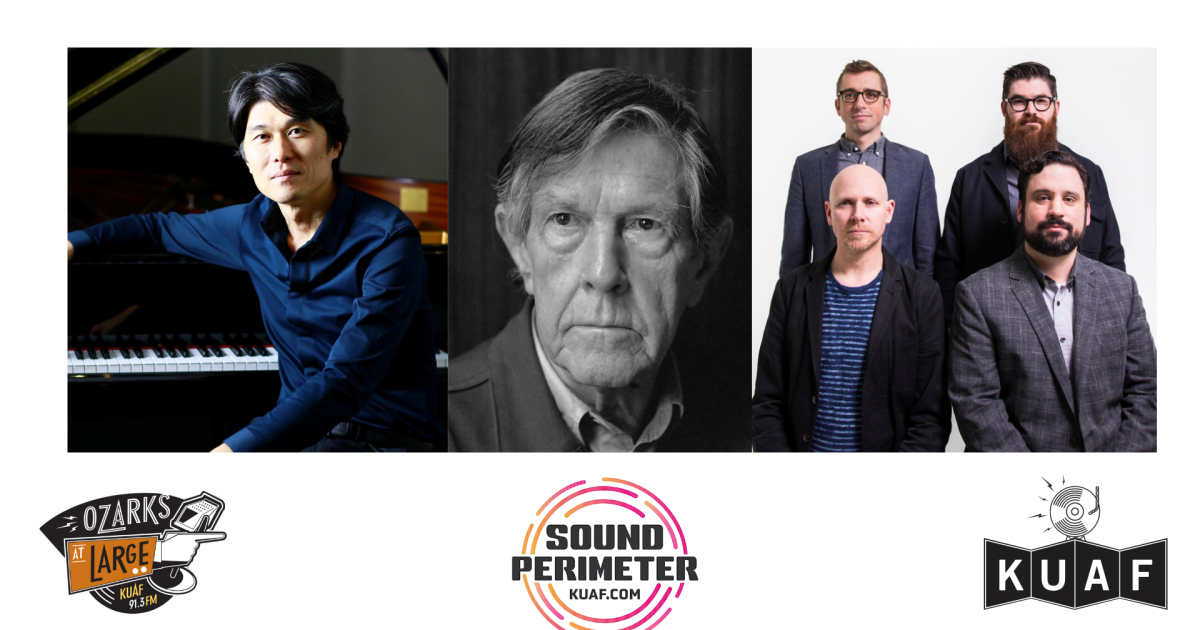The Unifying Sound Perimeter: Music's Impact On Human Connection

Table of Contents
Music as a Universal Language
Music's ability to connect us lies in its capacity to act as a universal language, bypassing the limitations of spoken words.
Transcending Linguistic Barriers
Music communicates emotions and experiences regardless of language.
- Universal Musical Emotions: Joy, sadness, anger, and fear are expressed through musical patterns and structures understood across cultures. A fast tempo often signifies excitement, while a slow tempo can convey sadness.
- Cross-Cultural Musical Similarities: Many musical elements, such as pentatonic scales, are found in diverse musical traditions worldwide, suggesting innate human preferences for certain melodic structures. The use of rhythm as a driving force in music is also a near-universal phenomenon.
- Role of Rhythm and Melody: Rhythm and melody work together to create emotional impact. The repetitive nature of rhythms can create a sense of comfort and familiarity, while melodic contours reflect emotional arcs.
For instance, the simple, repetitive melodies found in many children's lullabies are soothing and comforting across cultures, demonstrating the universality of musical expression. Similarly, the blues genre, originating in African American culture, has spread globally and influenced numerous musical styles, showcasing music's ability to transcend geographical boundaries.
Shared Emotional Experiences
Music creates shared emotional experiences that foster a sense of community and belonging.
- Communal Musical Experiences: Concerts, festivals, and even religious ceremonies utilize music to create a sense of unity and shared purpose. The collective experience intensifies emotional responses.
- Shared Emotional Responses: When people experience the same music simultaneously, they often share similar emotional responses, strengthening their sense of connection.
- Collective Singing and Dancing: Engaging in collective musical activities, like singing in a choir or dancing at a festival, further enhances feelings of group cohesion and shared identity.
Research suggests that listening to music releases endorphins, creating a physiological response that reinforces positive social bonding. The shared experience of these physiological responses deepens the sense of connection fostered by music.
Music's Role in Social Cohesion
Music plays a vital role in strengthening social bonds and creating a sense of belonging.
Building Communities Around Shared Musical Tastes
Shared musical preferences act as a powerful catalyst for community formation.
- Fan Communities: Online forums, social media groups, and fan clubs dedicated to specific artists or genres allow individuals to connect with like-minded people, fostering friendships and shared experiences.
- Music Festivals as Social Events: Music festivals bring together large groups of people who share a common interest in music, creating opportunities for social interaction and the formation of new relationships.
- Role of Music in Identity Formation: Music often plays a significant role in shaping individual and group identities. Listening to certain types of music can signal belonging to a particular social group or subculture.
For example, the global K-pop fanbase demonstrates the powerful community-building capabilities of music, with fans connecting across geographical and cultural borders through online and offline interactions.
Music Therapy and its Impact on Social Interaction
Music therapy utilizes music to improve social skills and emotional well-being.
- Music Therapy Techniques: Music therapists employ various techniques, such as songwriting, improvisation, and active listening to music, to help individuals improve communication skills, manage emotions, and build social confidence.
- Beneficial Populations: Individuals with autism spectrum disorder, social anxiety, and other communication challenges often benefit from music therapy.
- Effectiveness of Music Therapy: Research shows music therapy's effectiveness in enhancing social interaction, reducing anxiety, and promoting emotional regulation.
Music therapy demonstrates the therapeutic potential of music in fostering positive social interactions and improving overall mental health.
Music and Intercultural Understanding
Music possesses remarkable power to bridge cultural divides and promote understanding.
Fostering Empathy and Cross-Cultural Dialogue
Music can foster empathy and facilitate cross-cultural dialogue.
- Musical Collaborations: Collaborations between artists from different cultural backgrounds create opportunities for creative exchange and mutual understanding.
- Intercultural Exchange Programs: Music plays a crucial role in intercultural exchange programs, promoting dialogue and shared experiences between people from different cultures.
- Storytelling and Cultural Values: Music often reflects the cultural values, beliefs, and experiences of its creators, providing insights into different cultures and fostering empathy.
For example, the fusion of musical styles from different cultures, such as world music, demonstrates the potential for music to transcend cultural boundaries and create something new and meaningful.
Music as a Tool for Social Change
Throughout history, music has been a powerful tool for social change.
- Protest Songs and Anthems: Protest songs and revolutionary anthems have been used to mobilize social movements and inspire collective action against injustice.
- Raising Awareness of Social Issues: Music can raise awareness about social issues and promote dialogue on important topics.
- Shaping Public Opinion: Music's ability to reach large audiences makes it a powerful tool for shaping public opinion and motivating social change.
Examples such as Bob Dylan's protest songs during the Civil Rights movement demonstrate music's ability to act as a catalyst for social change, inspiring action and promoting dialogue.
Conclusion
Music's impact on human connection is undeniable. Its ability to transcend linguistic and cultural barriers, its role in building social cohesion, and its power to foster empathy and understanding are evident throughout history and across cultures. Music creates shared experiences, builds communities, and inspires social change. Embrace the unifying sound perimeter of music – participate in a community choir, attend a concert, or simply share your favorite songs with others. Discover how music can deepen your connections and enrich your life. The unifying power of music's impact on human connection deserves to be celebrated and utilized to build a more connected and compassionate world.

Featured Posts
-
 Vanja I Sime Fotografije Koje Su Osvojile Fanove Gospodina Savrsenog
May 21, 2025
Vanja I Sime Fotografije Koje Su Osvojile Fanove Gospodina Savrsenog
May 21, 2025 -
 T Ha Epistrepsei O Giakoymakis Sto Mls
May 21, 2025
T Ha Epistrepsei O Giakoymakis Sto Mls
May 21, 2025 -
 Paulina Gretzkys Mini Dress Playdate Fashion
May 21, 2025
Paulina Gretzkys Mini Dress Playdate Fashion
May 21, 2025 -
 Huuhkajat Mm Karsinnoissa Uusi Valmennusryhmae Ja Strategia
May 21, 2025
Huuhkajat Mm Karsinnoissa Uusi Valmennusryhmae Ja Strategia
May 21, 2025 -
 Analyzing Liverpools Win Arne Slot And Luis Enriques Perspectives
May 21, 2025
Analyzing Liverpools Win Arne Slot And Luis Enriques Perspectives
May 21, 2025
